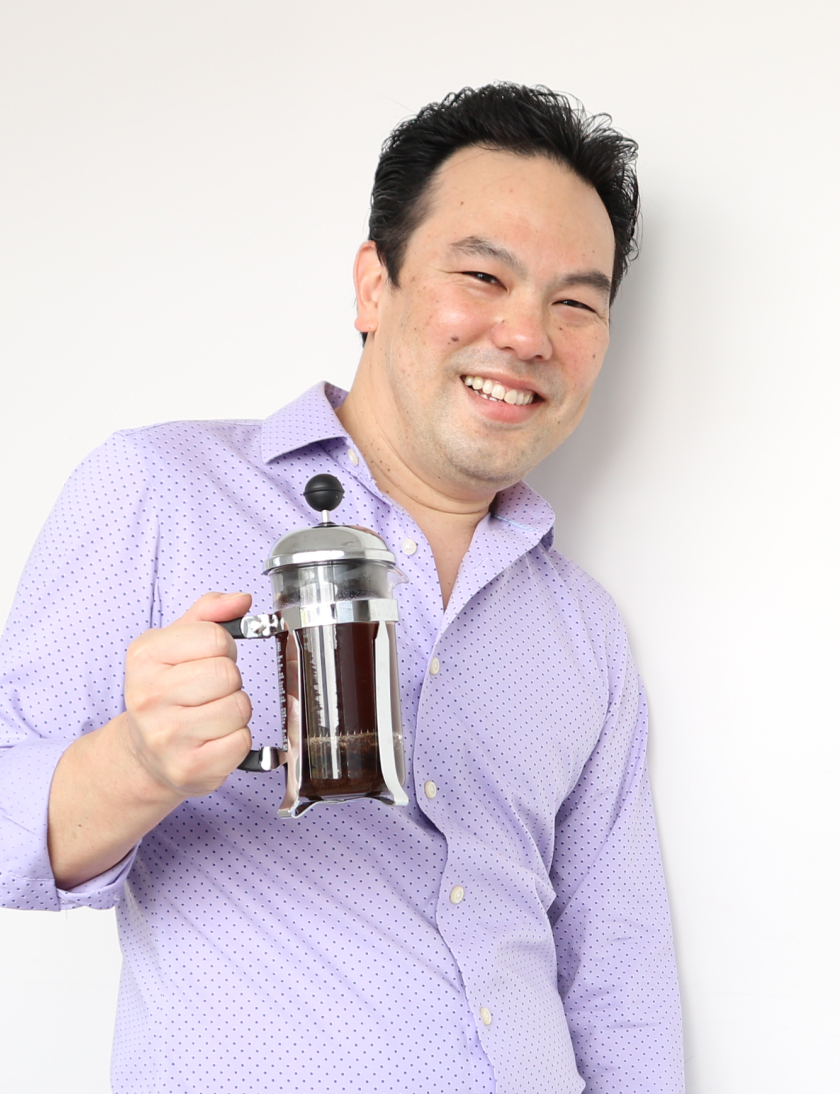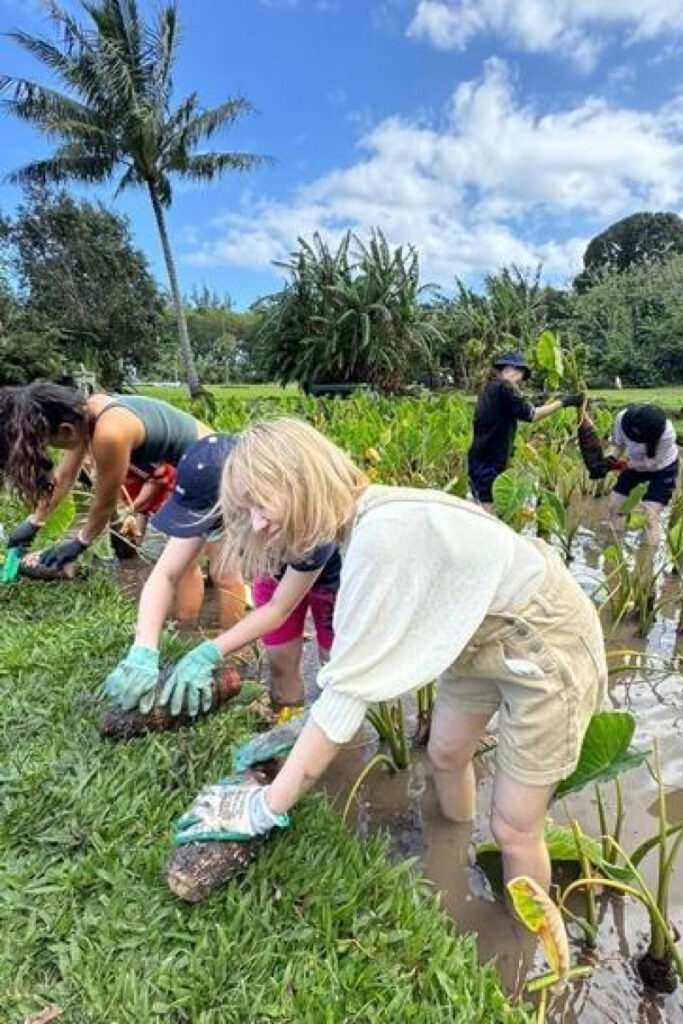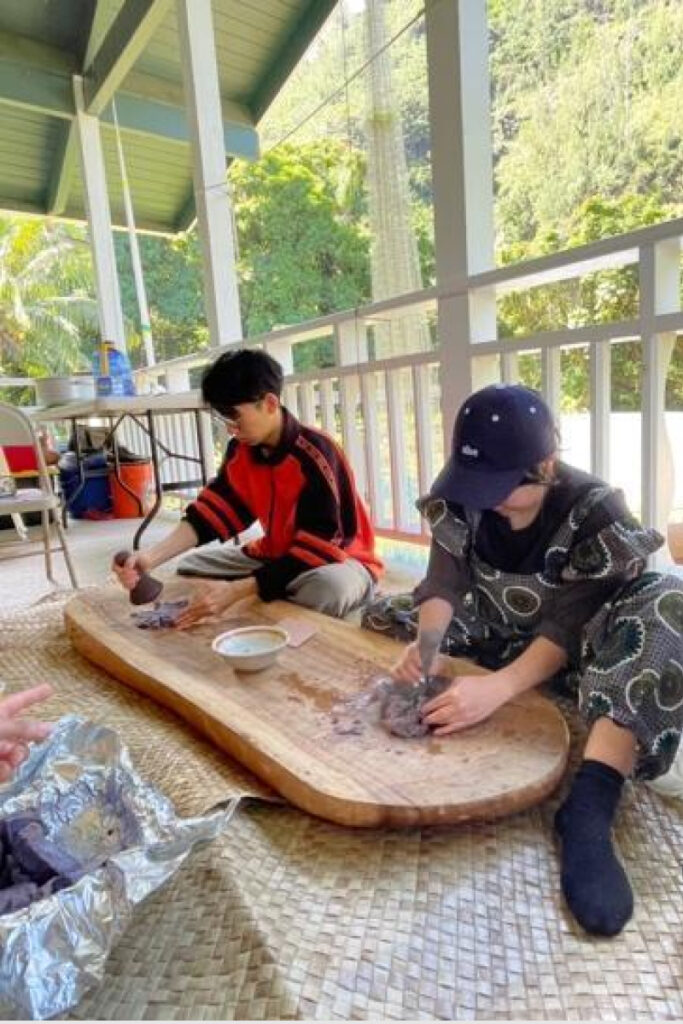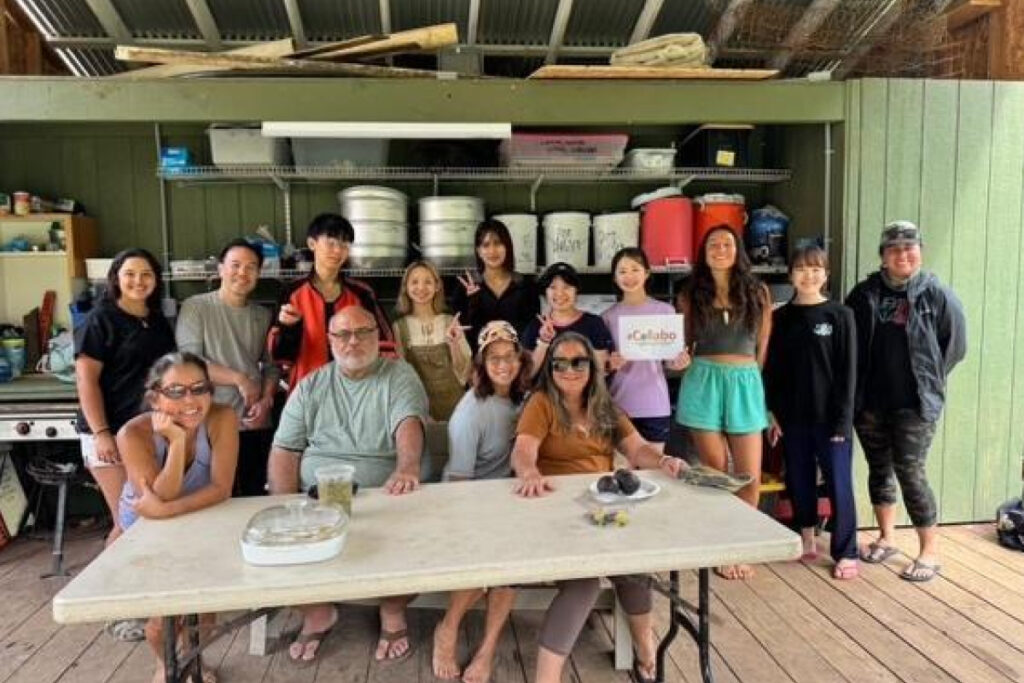
講師
エリック・ヒラタ
Eric HIRATA
- 専門:
- 集団力学(グループ・ダイナミクス)・協調学習
私は、日系4世のアメリカ人です。曽祖父が日本からハワイに移住したからです。生まれと育ちはロサンゼルスで、ワシントン州立大学を卒業しました。大学生に教えたいと思うようになったのはこの頃です。数年後に日本に来て、それから、学校で子どもたちに英語を教えたり、トヨタ自動車・三菱自動車といった愛知県にあるさまざまな企業や他の大学で英語を教えた後、名古屋外国語大学で働き始めました。
I am a fourth generation Japanese American, since my great-grandparents came to Hawaii from Japan. I was born and raised in Los Angeles and graduated from Washington State University. It was at this time that I realized I wanted to teach university students. I came to Japan a few years later and after teaching English at children’s schools, various companies in Aichi, such as Toyota and Mitsubishi, and other colleges and universities, I began working here at NUFS.
メッセージ
何かを理解する一番の方法は、コミュニケーションをとることです。理解不足や解釈の行き違いが争いにつながることはよくあります。これは、効果的なコミュニケーションによって避けられます。うまくコミュニケーションをとるには、世界中のさまざまな文化やコミュニティの価値を理解することが重要です。時間をかけて世界の多様な文化や共同社会について学べば、グローバル・シチズンとして、社会に良い影響を与えることができます。
The best way to understand something is through communication. A lack of understanding or a misunderstanding often leads to conflict. This can be avoided through effective communication. To be able to successfully communicate, it’s important to appreciate the various cultures and communities around the world. If you take the time to learn about a variety of global cultures and communities, you can become a global citizen and have a positive impact on society.
グローバル共生学科ならではの学びとは?
グローバル共生学科では、クラスメイトや他の学生、教員と「コラボ」したり、共に活動したりしながら、日本や世界の国際問題について学ぶことができます。学科のカリキュラムでは、学生は主体的に学習に取り組みます。ディスカッションに参加するだけでなく、批判的思考力や問題解決能力、コミュニケーション能力を、学生同士が協調して高めていくことが奨励されています。教員「から」学ぶだけでなく、教員やクラスメイト「と」一緒に学ぶことも重要です。
In our department, you will enjoy collaborating, or working together, with classmates, other students, and teachers while you learn about global issues both within Japan and around the world. We focus on active learning with our curriculum that encourages students to not only participate in discussions but to work together to improve critical thinking, problem solving, and communication skills. It is important to not only learn from your teachers but with your teachers as well as your classmates.
専門分野
集団力学と協調学習が専門です。
集団力学(グループ・ダイナミクス)の分野では、グループ内にポジティブで快適な環境があれば、学習や創造性、協働(コラボ)の達成率が向上すると言われています。優れたグループ・ダイナミクスは、全員が協動し、助け合い、のびのびとコミュニケーションをとることで、グループ全体の学習の成功にもつながります。
ある言語を学ぶとき、上達するための一番の方法は、他の人たちと気楽な環境で言語を使用することです。クラス内の優れたグループ・ダイナミクスは、快適で協力的で前向きな環境を創ることに役立ちます。それにより、楽しく学習し、語学力を向上させることができます。教室内で優れたグループ・ダイナミクスを構築するには時間がかかります。最初の授業から始まり、学年を通して継続されるものです。クラスメイトや教員と親しくなるにつれて、教室が楽しく学べる環境になり、知識と語学力が高まります。
In the field of group dynamics, the success of learning, creativity, and collaboration are much better when there is a positive and comfortable environment within a group. Good group dynamics can also lead to more successful learning for everyone in the group when everyone is working together, helping each other, and communicating freely.
When you learn a language, the best way to get better at it is to feel comfortable using the language around other people. Good group dynamics in the classroom helps to create an environment that is comfortable, supportive, and positive, which makes it enjoyable to learn and improve language skills. Building good group dynamics within a classroom takes time, starts with the first class, and continues throughout the academic year. As you continue to get to know your classmates and teacher, the classroom becomes an enjoyable environment to learn in and increase your knowledge and language skills.
学科で教えていること
グローバル共生学科の英語プログラムは、社会的責任、ジェンダー平等、児童労働といった国際的なトピックに焦点を当てています。学科独自の点は、英語カリキュラム全体で共通のトピックを教えていることです。たとえば、「Reading for Global Issues」の授業では、 トピックについて書かれた文章を読んで議論しますが、「Writing about Global Issues」では同じトピックで文章を書きます。これは、重要な国際問題について英語で学びながら、読む・話す・聞く・書く技能を磨くことができる、すぐれた方法です。また、英語カリキュラム全体で共通のトピックで学習することで、トピック内の多くの問題についてより深く理解することができます。
地域創生科目の一環として、持続可能な生活スタイルを生み出すために、世界中のさまざまなコミュニティと「コラボする」経験ができる機会を提供しています。たとえばハワイ・プログラムでは、カウアイ島という地域で活動しています。観光公害、乱獲、侵略的外来種が問題になっており、陸と海の多くの天然資源が失われています。プログラムでは、地域の人々と協力しながら土地の管理・開発を支援し、ハワイ文化にとって重要な資源を収集し保護しています。
In our English program, we focus on global topics such as social responsibility, gender equality, and child labor. What is unique about our department is that our topics are taught across the curriculum. For instance, in our Reading for Global Issues class, you read about and discuss the topics while in Writing about Global Issues, you write essays about the same topics. This is a great way to learn about important global topics in English while working on your reading, speaking, listening, and writing skills. Also, by studying the same topics across the curriculum, you can get a deeper understanding of many of the issues within the topic.
As part of our Chiki Sosei Program in the department, we also give students the chance to experience collaborating with different communities around the world to help create sustainable living practices. In the Hawaii Program, for example, we work in an area on Kauai that, due to problems such as overtourism, overfishing, and invasive species, has lost many of its natural resources on the land and in the sea. Our program works together with the people in the area to help take care of and develop the land by gathering and protecting resources that are important to Hawaiian culture.
担当科目
- Writing about Global Issues
- Reading for Global Issues
- Debating on Global Issues
- 地域創生: ハワイ・プログラム

Students working in a Lo’i Kalo (taro patch) on Kauai as part of the Chiki Sosei: Hawaii Program. Kalo (taro) is an important food source in traditional Hawaiian culture.

After harvesting kalo (taro), students learned how to make poi, which is a traditional Hawaiian staple food, eaten with most meals often as a rice substitute.

Working with the NPO, Hui Maka’ainana o Makana, the students learned about Hawaiian culture and the importance of preserving and maintaining the natural resources on the land and in the sea.
主な学術論文
- “Our Shared Experience in Group Dynamics”『名古屋外国語大学論集』第12号、2023年
- “Enhancing the Learning Process Through Group Dynamics”『名古屋外国語大学論集』第11号、2022年
- “The Use of Cooperative Learning to Enhance Communication Skills”『名古屋外国語大学論集』第9号、2021年
- “Changing Writing Classrooms through Group Dynamics,” The Asian Conference on Language Learning 2017 Official Conference Proceedings, 2017
最も影響を受けた人や言葉
「言われたことは、忘れる。教わったことは、覚える。参画したことは、学ぶ。」
この言葉の引用元がベンジャミン・フランクリンか中国哲学かは議論の余地がありますが、言葉そのものが持つ影響力は変わりません。学生時代、私は、誰かの話を聞いたり説明を受けたりするのではなく、自分から参加することが一番勉強になりました。自ら経験したり議論に参加したりすると、ただ聞いたり話されたりしているときよりも多くのことを学べます。時を経て忘れてしまったことはたくさんありますが、他の人の体験談を聞くだけでなく、自分が実際に体験した時に学んだことははっきりと覚えています。それが私の教育哲学の重要な一部になっていて、学生がただ座って聞いているだけではなく、できるだけ積極的に参加して、実践を通して学べるようにすることを目指しています。
“Tell me and I forget. Teach me and I remember. Involve me and I learn.”
While it’s up for debate as to whether this quote comes from Benjamin Franklin or Chinese philosophy, the words itself still have the same impact. As a student, I always learned best when I could participate rather than just listen to someone talk or explain something to me. When I am involved in an experience or discussion, I learn more than when I’m just being talked at or spoken to. Over the years, there are many, many things I’ve forgotten, but I can clearly remember things that I’ve learned when I was a part of the experience rather than just listening to other experiences. As a result, it has become an important part of my teaching philosophy, as I aim to get students involved as much as possible to learn by doing rather than by sitting around and listening.
